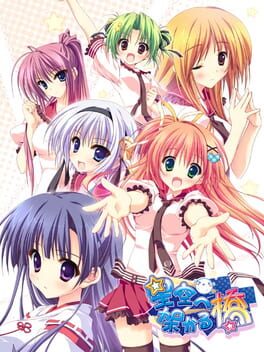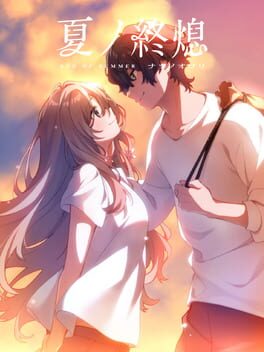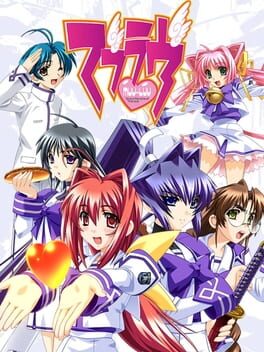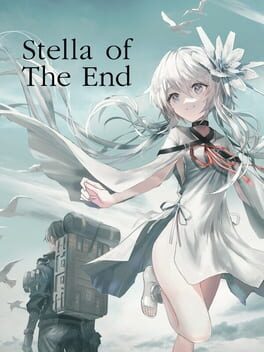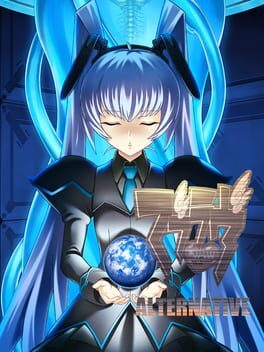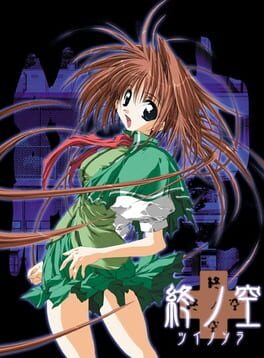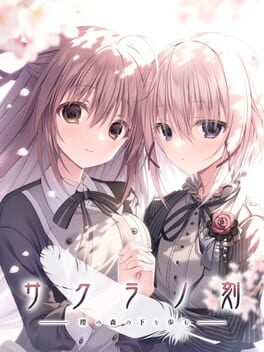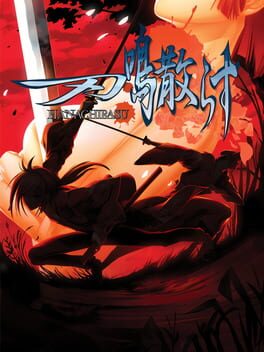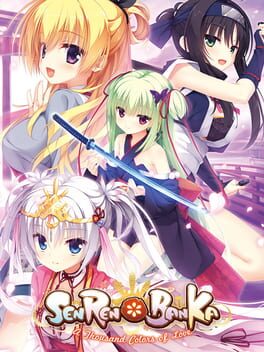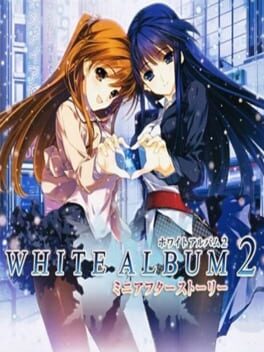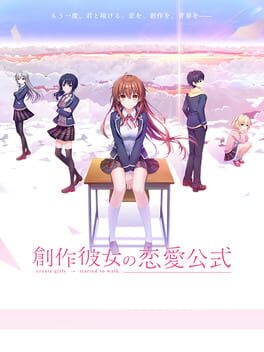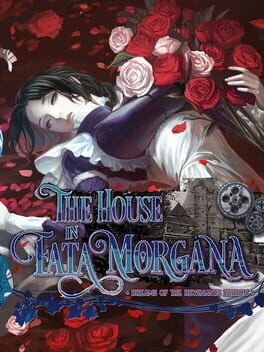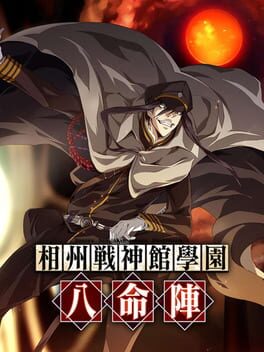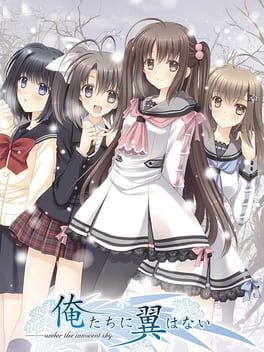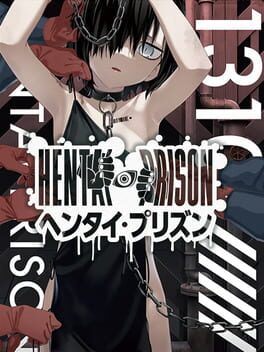Zemania
2022
Got charmed by the sweet and heartwarming cover art, as well as by the deep mountain countryside atmosphere... I just love that type of setting.
But it wasn't great in the end. Too short to build something captivating. The little survivalist scenes in the wild are basically all the game has to offer. I would have liked some real flashbacks where you see the scope of the apocalypse firsthand. With such a scenario there was a way to do something bigger, related to the pandemic of the past two years IRL. But I guess the ambition of Natsu no Owari is more modest. honorable mentions to Itou Shizuka's great performance, the Higurashi-style opening, and the bad end which was quite beautiful, despite the fact that I had no attachment whatsoever with the characters.
Kazuki Fumi will be back in November with Zwei Trigger, I'll keep an eye on it.
But it wasn't great in the end. Too short to build something captivating. The little survivalist scenes in the wild are basically all the game has to offer. I would have liked some real flashbacks where you see the scope of the apocalypse firsthand. With such a scenario there was a way to do something bigger, related to the pandemic of the past two years IRL. But I guess the ambition of Natsu no Owari is more modest. honorable mentions to Itou Shizuka's great performance, the Higurashi-style opening, and the bad end which was quite beautiful, despite the fact that I had no attachment whatsoever with the characters.
Kazuki Fumi will be back in November with Zwei Trigger, I'll keep an eye on it.
2003
2022
The general presentation was really top-notch, the grayish and grainy visuals intelligently serve the purpose, i.e. desolate landscapes, ghost cities, or dilapidated towns, looking like refugee camps, in which dystopian microcosms develop, and to which human heart doesn't belong.
But the coolest part is obviously the text itself. It is indeed through Judo's long sentences that we feel the most how much this universe is credible. I wouldn't say that his character is particularly fascinating, but to be immersed in his thoughts in such a raw fashion contributes to the characterization of his emotions, and thus to immersion.
"Fundamental and irrational feelings, only once we rationalize them can we call ourselves human." The desire to become human, the unconditional parental love, both are impulses with no logical basis. The heart of Tsui no Stella is indeed to attach rationality to them as best we can, through prose, through tribulations. But we are also human precisely because we find it difficult to verbalize these things. Romeo does not reveal these truths through flowery and charming dialogues. The interactions are grey, sullen, the men are on edge, and that makes them all the more believable.
Another point that surprised me as much as it pleased me was the focus on a parental relationship instead of a romantic one. This is quite rare in the medium - especially for such a big production. But it was the natural choice here: since being human is about being able to "pass on to the next generation", what better way to illustrate that than a father-daughter relationship?
It's really a good game that I highly recommend (plus it's very short). I have only one desire now and that is to discover the other works of Tanaka Romeo. In particular Saihate no Ima, Kazoku Keikaku and Cross Channel. But until then, I'll cry just a bit more: https://youtu.be/_wmrP0DOj0Q
But the coolest part is obviously the text itself. It is indeed through Judo's long sentences that we feel the most how much this universe is credible. I wouldn't say that his character is particularly fascinating, but to be immersed in his thoughts in such a raw fashion contributes to the characterization of his emotions, and thus to immersion.
"Fundamental and irrational feelings, only once we rationalize them can we call ourselves human." The desire to become human, the unconditional parental love, both are impulses with no logical basis. The heart of Tsui no Stella is indeed to attach rationality to them as best we can, through prose, through tribulations. But we are also human precisely because we find it difficult to verbalize these things. Romeo does not reveal these truths through flowery and charming dialogues. The interactions are grey, sullen, the men are on edge, and that makes them all the more believable.
Another point that surprised me as much as it pleased me was the focus on a parental relationship instead of a romantic one. This is quite rare in the medium - especially for such a big production. But it was the natural choice here: since being human is about being able to "pass on to the next generation", what better way to illustrate that than a father-daughter relationship?
It's really a good game that I highly recommend (plus it's very short). I have only one desire now and that is to discover the other works of Tanaka Romeo. In particular Saihate no Ima, Kazoku Keikaku and Cross Channel. But until then, I'll cry just a bit more: https://youtu.be/_wmrP0DOj0Q
2006
TBD
2005
2016
和式舞台は贔屓で仕方ない
シナリオに於いて佳句点はないが、そんなに見咎める事項が無いということでもある。 登場人物に付いては言うまでもない茉子ちゃんとレナちゃんを先頭に可愛いキャラ許り。
千恋万花の特長はゲーム自体の世界観と思いますし、平たく言えば穂織の町並みである。 本物3次元の観光名所と思しいぐらい魅力に溢れ出した。
ムラサメとレナのルートが特にお気に入りでした。 特にムラサメちゃんのは、街の皆で町おこしという大同団結の為に頑張る乍ら、その中枢は主人公の努力するシーンは見習いたい部分で、こういった青春があればぁと数度思いました。
純愛でベタなイチャラブが見たい時、こういうのを馬鹿にせずに作ってる人たちを有り難い思う。
次に、エロネタも最っ高でした!
取り立てて、レナちゃんのシーンは素晴らしかった。我が身が可愛くてシコいことを自覚している狡猾なエロ雌が、エロゲー界最高糖度を誇る声優種﨑敦美のは緻密嬌声でねちねちと生意気に挑発してくる様子を想像してみてほしい。
お○ん○んが極めてイライラしてくる。
それは仕方がない。
雄性に条件反射ですから。
その上更にお○○いでっっっっか。。。
(追伸: アフターもめっちゃ抜けるよ)
シナリオに於いて佳句点はないが、そんなに見咎める事項が無いということでもある。 登場人物に付いては言うまでもない茉子ちゃんとレナちゃんを先頭に可愛いキャラ許り。
千恋万花の特長はゲーム自体の世界観と思いますし、平たく言えば穂織の町並みである。 本物3次元の観光名所と思しいぐらい魅力に溢れ出した。
ムラサメとレナのルートが特にお気に入りでした。 特にムラサメちゃんのは、街の皆で町おこしという大同団結の為に頑張る乍ら、その中枢は主人公の努力するシーンは見習いたい部分で、こういった青春があればぁと数度思いました。
純愛でベタなイチャラブが見たい時、こういうのを馬鹿にせずに作ってる人たちを有り難い思う。
次に、エロネタも最っ高でした!
取り立てて、レナちゃんのシーンは素晴らしかった。我が身が可愛くてシコいことを自覚している狡猾なエロ雌が、エロゲー界最高糖度を誇る声優種﨑敦美のは緻密嬌声でねちねちと生意気に挑発してくる様子を想像してみてほしい。
お○ん○んが極めてイライラしてくる。
それは仕方がない。
雄性に条件反射ですから。
その上更にお○○いでっっっっか。。。
(追伸: アフターもめっちゃ抜けるよ)
Bootleg Saekano with a mediocre and generic plot. The common route was decent despite all the cliches but the characters' were just... rushed. The art is relatively high-quality though, you can feel the love for eroge Keisuke Kudou and his team have.
I don't really understand how this is the 2021 Moe Game Awards grand winner. Is it because it was an exceptionally weak year, or is the medium just dying, who knows..
I don't really understand how this is the 2021 Moe Game Awards grand winner. Is it because it was an exceptionally weak year, or is the medium just dying, who knows..
This review contains spoilers
「俺はいつか言ったな。 俺たちの住む場所に都合のいい逃げ場なんてない。ここは天国じゃないんだ」
「だがな、俺はおまえたちを見てると思うんだ。 確かに俺たちは天使じゃないし、空を飛ぶことなんか出来ない」
「それでも羽ばたくことくらいは出来るんじゃないか。 きっとおまえたち全員の力を合わせれば、この地上でも楽しく生きられるさ。 なあ、 おまえたち―」
Oretsuba’s writer, Ou Jackson, is one of the few eroge writers with a reputation so massive that even people who’ve never read him have at least heard about his feats. His vocabulary’s breadth, depth of knowledge, sense of humor, outstanding descriptions of scenes, and most importantly persuasiveness through psychological descriptions; all make him an exceptional writer and storyteller. His ability to create characters and the human drama that emerges from it are simply magnificent. By first showcasing a wide variety of characters and then combining the comicalness that could only exist in a fictional world with a quite unique sense of reality, Jackson creates an enchanting gap inside of his characters, making us feel that they truly are alive. Their descriptions are detailed, and the casual movements and changes in facial expressions are carefully depicted, highlighting their humanity and vividness. The descriptive exhaustiveness of the narrator also serves the characterization of the protagonist. You can FEEL Shuusuke’s obsession for tsukkomi and fear of letting the tension drop; Hayato’s (initial) genuine detachment towards others, knowing that his existence is ephemeral; Takashi’s fear of letting chaos and negative emotions flow around him…
Of course, such qualitative character writing isn’t restricted to the MC, quite the contrary actually. Oretsuba’s true strength is in its many side characters. Each of them is full of unique charm, and by the end of the game, the conversations among them feel like you’re just sitting around with your friends after a day of work. Paradoxically, what makes the writing so efficient here is that you rarely get the full backstory behind each of them. They’re all characterized solely through dialogues and silly banter; their depth isn’t created through events but by mundane and seemingly trifling scenes. This is what made Oretsuba so addictive to read to me. Yanagihara is a big city so lively that after a few hours, you begin to ask yourself if the city itself isn’t a character. It metamorphoses itself according to which character, which place, and which time of the day you decide to open your eyes to. The electrical nightlife streets, daytime school grounds, busy business district, swarming morning railroad station, etc., all these settings can even change 3, 4 even 6 times depending on which narrator you’re discovering them with. Once again, all of this is possible thanks to the side characters who belong to each of these places. They each deal humanely with their own problems, beliefs, and pride, which are gradually brought to light as the story progresses. Each of them feels necessary to the story and they often steal the spotlight from heroines themselves. This is where Jackson’s writing truly shines. As stated above, each of these characters has a distinct “voice” – I am not only referring to their speech pattern but also to something deeper. I think that real-life people are often characterless, or at least are they not adventurous in their behavior. And the more they fit as ordinary people, the more they lose the ability to speak and act outside the bounds of common sense. Oretsuba’s characters have behavioral traits that are the exact opposite of the ones of characterless people. They just feel real. Watching them struggle from day to day, living lives they know are ephemeral, some finding in Yanagihara’s night streets solace from persecution, some courageously attempting 入試 after years of failure, etc. gave me a little courage to live. Nonetheless, one could instead be inspired by the escape of these weak characters who cannot face reality and try to live without any problems, drowning in idle chat and living one day at a time. It’s about what lesson one takes from them. Takeshi’s journey is a perfect counterexample for an escapism apology, but I’ll get back to it later.
The structure of the story is very clever and such a pattern could only exist through Jackson’s meticulous writing. The narrator of each route is depicted in different ways, with the language register and overall prose changing accordingly. There are times when the narrator uses SIX DISTINCT VOICES at the same time, and they all flow naturally through the reader’s mind.
Jackson’s skill in leading and misleading the reader’s expectations throughout the common route is truly outstanding. Its composition is skillful: the development and retrieval of foreshadowing elements, making you understand that every single detail in the first chapters meant something and was predestined to be retrieved later felt like an epiphany. However, there were no satisfying dramatic developments or climactic twists after that. The scenario of Oretsuba revolves around the sequential romance and the internal growth of each main character, and although it is well thought out, it lacks excitement. Maybe is this due to the fact that the setting of this work is so realistic it can be unassuming, which limits the number of major events that can actually take place in the work.
「世界は平和でありますように」
HAWK AND ASUKA/YAMASHINA
「自分の中に閉じこもるのは、 逃避じゃなくて探索だと」
「現実から離れても、そこからなにか持ちかえってこられるなら、 決してその世界は無駄ではないってな」
Takashi sees the world through a golden filter, making everything beautiful and peaceful. He can freely flap his wings in his imagination, but he is just left behind in the world. His journey is about breaking through the shell of his fantasy and becoming aware of the anchor-like love that holds him to reality. I loved how Asuka did not save Takashi but instead understood him. And by doing so, not only Takashi but also Asuka was saved. It was a real love story in which both found someone they could rely on.
「そういうカッコつけとか、悟りっぽいこととか、シリアス語りのあとには 『なーんちゃって』 に相当するオチを付けて、 自分を落とさなきゃ気が済まないの」
「分かっててやってマスヨ? 的な空気じゃないと座りが悪いっていうね。きっと一生懸命が格好悪いみたいな若者文化の延長線上だね。 現代の病理だね。シャイなあんちくしょうだね」
The part of this route that truly resonated with me was about being true to yourself and not caring about looking cool or dignified. Watching the way Takashi runs around in school accomplishing his tasks without fearing the eyes of others could have helped me when I was his age. At some point in my teenage years, I became afraid of being hated and I stopped making friends. I tried to act tough as if I didn’t fear the world of adults. This fear later turned into disinterest, and I ended up alone for many years. To live is to sin, to live is to hurt people, it is unavoidable. The real world isn’t golden, we do not have bright white wings to soar through its asperity. But we can change the way we look at it. We have this power as human beings. なーんちゃって
Besides this, not much can be said about the plot itself, very classic.
Yamashina’s bad end was terrifying.
「世界は平和でありますように」
EAGLE AND TAMAIZUMI
Even more classic route progression, but I still fell for Tamaizumi’s tsundere cuteness.
「世界は平和でありますように」
FALCON AND NARU
I didn’t care much about Naru, Ai was my real love interest here. Unfortunately, she wasn’t the focus of the route despite her cuteness. I loved how despite being a gyaru, she changed her clothing, nails, and overall appearance to match Hayato’s tastes. She even tries to get along with the women who get close to him. Her lines in the epilogue were kind of sad.
「世界は平和でありますように」
GARUDA
GARUDA SAMA
This was the first time in the game that made me broke into hysterical laughter. What a funny character. The text is so kami, you can't help but laugh at this. This might be the part Jackson had the most fun writing. He should have given Garuda an actual route. His chemistry with Kakeru is amazing.
「世界は平和でありますように」
YOUJI AND KOBATO
This is the culmination route where the personalities are integrated into one and all the characters from the past appear. Kobato is a cute but uninteresting heroine. And she’s his sister or cousin? I don't think there was any need to force romance into the story. Maybe making her a childhood friend would have made the romance feel more natural. Anyway, after some funny scenes with all the cast interacting with Kobato for the first time, we reach the long-awaited flashback which is rather bland and predictable. Scenario-wise this game is a letdown. I still enjoyed how the disparate stories that had been developed up until now came together and became like an organic body. I had more fun reading the slice-of-life scenes than the actual resolution of the story. Oretsuba is so good at comedy it makes you feel like its story ends in a very bland way (maybe it did).
「世界は平和でありますように」
FINAL THOUGHTS AND TECHNICAL POINTS
I liked the irony of reader = protagonist = Takashi = Youji. As a game for otaku who tend to self-insert with the main character, the theme of the game is rehabilitation from escapism, and the main character is famous on a certain message board. One could also draw parallels between Takashi’s fantasy world and current Narou/isekai trends in otaku media. Haryuu even jokes at some point that words like “moe” will become common in Western cultures. Knowing that the game was written around 2004 if not even before helps us understanding how aware Jackson was of otaku culture.
H-scenes and romance in general were bad, just bad. Asuka is the only one where I felt like there was true love but even then, it was poorly executed and too much expeditious.
The art was okay. I just wished characters had a broader range of facial expressions. I thought Asuka and Kinako were the same person until the end of the former’s route… H-CGs were awful: the bodies feel stiff, just like wooden dolls. Overall, I found that heroines lacked visual appeal.
BGM and songs were great https://youtu.be/ieNuxMwhpzs
All in all, a great game but I wish there was more narrative depth to each route.
「この世界は、平和で満たされていたんだ。」
「だがな、俺はおまえたちを見てると思うんだ。 確かに俺たちは天使じゃないし、空を飛ぶことなんか出来ない」
「それでも羽ばたくことくらいは出来るんじゃないか。 きっとおまえたち全員の力を合わせれば、この地上でも楽しく生きられるさ。 なあ、 おまえたち―」
Oretsuba’s writer, Ou Jackson, is one of the few eroge writers with a reputation so massive that even people who’ve never read him have at least heard about his feats. His vocabulary’s breadth, depth of knowledge, sense of humor, outstanding descriptions of scenes, and most importantly persuasiveness through psychological descriptions; all make him an exceptional writer and storyteller. His ability to create characters and the human drama that emerges from it are simply magnificent. By first showcasing a wide variety of characters and then combining the comicalness that could only exist in a fictional world with a quite unique sense of reality, Jackson creates an enchanting gap inside of his characters, making us feel that they truly are alive. Their descriptions are detailed, and the casual movements and changes in facial expressions are carefully depicted, highlighting their humanity and vividness. The descriptive exhaustiveness of the narrator also serves the characterization of the protagonist. You can FEEL Shuusuke’s obsession for tsukkomi and fear of letting the tension drop; Hayato’s (initial) genuine detachment towards others, knowing that his existence is ephemeral; Takashi’s fear of letting chaos and negative emotions flow around him…
Of course, such qualitative character writing isn’t restricted to the MC, quite the contrary actually. Oretsuba’s true strength is in its many side characters. Each of them is full of unique charm, and by the end of the game, the conversations among them feel like you’re just sitting around with your friends after a day of work. Paradoxically, what makes the writing so efficient here is that you rarely get the full backstory behind each of them. They’re all characterized solely through dialogues and silly banter; their depth isn’t created through events but by mundane and seemingly trifling scenes. This is what made Oretsuba so addictive to read to me. Yanagihara is a big city so lively that after a few hours, you begin to ask yourself if the city itself isn’t a character. It metamorphoses itself according to which character, which place, and which time of the day you decide to open your eyes to. The electrical nightlife streets, daytime school grounds, busy business district, swarming morning railroad station, etc., all these settings can even change 3, 4 even 6 times depending on which narrator you’re discovering them with. Once again, all of this is possible thanks to the side characters who belong to each of these places. They each deal humanely with their own problems, beliefs, and pride, which are gradually brought to light as the story progresses. Each of them feels necessary to the story and they often steal the spotlight from heroines themselves. This is where Jackson’s writing truly shines. As stated above, each of these characters has a distinct “voice” – I am not only referring to their speech pattern but also to something deeper. I think that real-life people are often characterless, or at least are they not adventurous in their behavior. And the more they fit as ordinary people, the more they lose the ability to speak and act outside the bounds of common sense. Oretsuba’s characters have behavioral traits that are the exact opposite of the ones of characterless people. They just feel real. Watching them struggle from day to day, living lives they know are ephemeral, some finding in Yanagihara’s night streets solace from persecution, some courageously attempting 入試 after years of failure, etc. gave me a little courage to live. Nonetheless, one could instead be inspired by the escape of these weak characters who cannot face reality and try to live without any problems, drowning in idle chat and living one day at a time. It’s about what lesson one takes from them. Takeshi’s journey is a perfect counterexample for an escapism apology, but I’ll get back to it later.
The structure of the story is very clever and such a pattern could only exist through Jackson’s meticulous writing. The narrator of each route is depicted in different ways, with the language register and overall prose changing accordingly. There are times when the narrator uses SIX DISTINCT VOICES at the same time, and they all flow naturally through the reader’s mind.
Jackson’s skill in leading and misleading the reader’s expectations throughout the common route is truly outstanding. Its composition is skillful: the development and retrieval of foreshadowing elements, making you understand that every single detail in the first chapters meant something and was predestined to be retrieved later felt like an epiphany. However, there were no satisfying dramatic developments or climactic twists after that. The scenario of Oretsuba revolves around the sequential romance and the internal growth of each main character, and although it is well thought out, it lacks excitement. Maybe is this due to the fact that the setting of this work is so realistic it can be unassuming, which limits the number of major events that can actually take place in the work.
「世界は平和でありますように」
HAWK AND ASUKA/YAMASHINA
「自分の中に閉じこもるのは、 逃避じゃなくて探索だと」
「現実から離れても、そこからなにか持ちかえってこられるなら、 決してその世界は無駄ではないってな」
Takashi sees the world through a golden filter, making everything beautiful and peaceful. He can freely flap his wings in his imagination, but he is just left behind in the world. His journey is about breaking through the shell of his fantasy and becoming aware of the anchor-like love that holds him to reality. I loved how Asuka did not save Takashi but instead understood him. And by doing so, not only Takashi but also Asuka was saved. It was a real love story in which both found someone they could rely on.
「そういうカッコつけとか、悟りっぽいこととか、シリアス語りのあとには 『なーんちゃって』 に相当するオチを付けて、 自分を落とさなきゃ気が済まないの」
「分かっててやってマスヨ? 的な空気じゃないと座りが悪いっていうね。きっと一生懸命が格好悪いみたいな若者文化の延長線上だね。 現代の病理だね。シャイなあんちくしょうだね」
The part of this route that truly resonated with me was about being true to yourself and not caring about looking cool or dignified. Watching the way Takashi runs around in school accomplishing his tasks without fearing the eyes of others could have helped me when I was his age. At some point in my teenage years, I became afraid of being hated and I stopped making friends. I tried to act tough as if I didn’t fear the world of adults. This fear later turned into disinterest, and I ended up alone for many years. To live is to sin, to live is to hurt people, it is unavoidable. The real world isn’t golden, we do not have bright white wings to soar through its asperity. But we can change the way we look at it. We have this power as human beings. なーんちゃって
Besides this, not much can be said about the plot itself, very classic.
Yamashina’s bad end was terrifying.
「世界は平和でありますように」
EAGLE AND TAMAIZUMI
Even more classic route progression, but I still fell for Tamaizumi’s tsundere cuteness.
「世界は平和でありますように」
FALCON AND NARU
I didn’t care much about Naru, Ai was my real love interest here. Unfortunately, she wasn’t the focus of the route despite her cuteness. I loved how despite being a gyaru, she changed her clothing, nails, and overall appearance to match Hayato’s tastes. She even tries to get along with the women who get close to him. Her lines in the epilogue were kind of sad.
「世界は平和でありますように」
GARUDA
GARUDA SAMA
This was the first time in the game that made me broke into hysterical laughter. What a funny character. The text is so kami, you can't help but laugh at this. This might be the part Jackson had the most fun writing. He should have given Garuda an actual route. His chemistry with Kakeru is amazing.
「世界は平和でありますように」
YOUJI AND KOBATO
This is the culmination route where the personalities are integrated into one and all the characters from the past appear. Kobato is a cute but uninteresting heroine. And she’s his sister or cousin? I don't think there was any need to force romance into the story. Maybe making her a childhood friend would have made the romance feel more natural. Anyway, after some funny scenes with all the cast interacting with Kobato for the first time, we reach the long-awaited flashback which is rather bland and predictable. Scenario-wise this game is a letdown. I still enjoyed how the disparate stories that had been developed up until now came together and became like an organic body. I had more fun reading the slice-of-life scenes than the actual resolution of the story. Oretsuba is so good at comedy it makes you feel like its story ends in a very bland way (maybe it did).
「世界は平和でありますように」
FINAL THOUGHTS AND TECHNICAL POINTS
I liked the irony of reader = protagonist = Takashi = Youji. As a game for otaku who tend to self-insert with the main character, the theme of the game is rehabilitation from escapism, and the main character is famous on a certain message board. One could also draw parallels between Takashi’s fantasy world and current Narou/isekai trends in otaku media. Haryuu even jokes at some point that words like “moe” will become common in Western cultures. Knowing that the game was written around 2004 if not even before helps us understanding how aware Jackson was of otaku culture.
H-scenes and romance in general were bad, just bad. Asuka is the only one where I felt like there was true love but even then, it was poorly executed and too much expeditious.
The art was okay. I just wished characters had a broader range of facial expressions. I thought Asuka and Kinako were the same person until the end of the former’s route… H-CGs were awful: the bodies feel stiff, just like wooden dolls. Overall, I found that heroines lacked visual appeal.
BGM and songs were great https://youtu.be/ieNuxMwhpzs
All in all, a great game but I wish there was more narrative depth to each route.
「この世界は、平和で満たされていたんだ。」
2022
